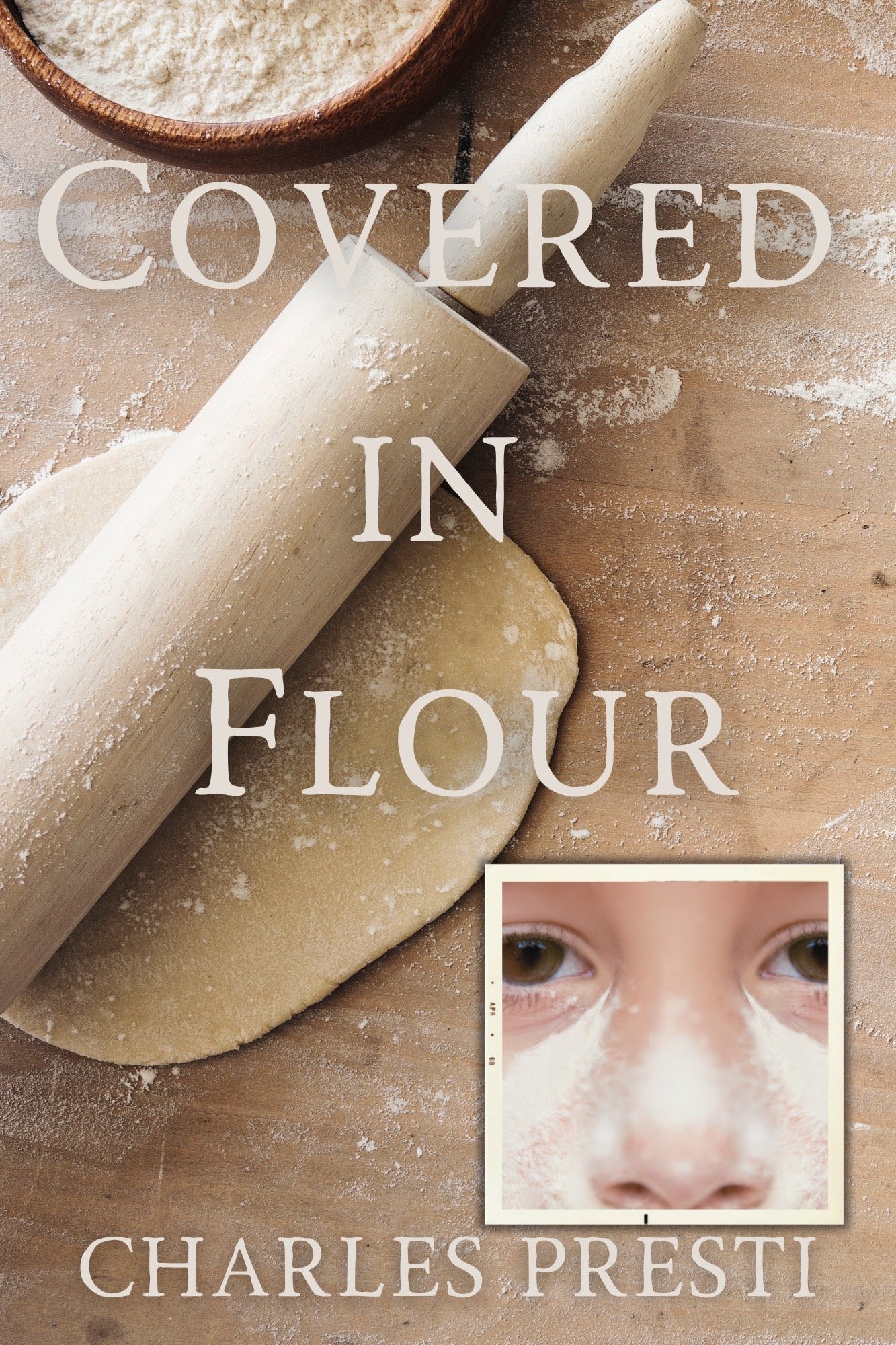Q & A
I'm Chuck Presti. I am a retired physician, and these days, I find my joy in simpler things—being a husband, a stepfather, grandfather, and a brother. The moments I cherish the most are the quiet ones spent with the people I love, including our Wheaton Terrier.
Can you please introduce yourself? Readers would love to know more about you.
Translating thoughts to paper was a humbling process. "Covered in Flour" was always there—in my memories, conversations, and personal experiences. The real challenge was giving it structure, making it a story that others could relate to. And as a first-time author, that was daunting.
What were the key challenges you faced while writing your book "Covered in Flour"?
What books or authors have most influenced your own writing?
Harper Lee's sincerity, Mark Twain's keen observations, Dr. Seuss's imagination, and JK Rowling's storytelling have been cornerstones in my understanding of what literature can achieve.
What’s your favorite spot to visit in your own country? And what makes it so special to you?
The place I hold dearest is my own home. There’s a sense of belonging there that I find nowhere else, nurtured by my spouse and the company of our beloved dog. It's not just a physical place but a haven of emotional connection.
What inspired you to write the book 'Covered in Flour'?
The inspiration for "Covered in Flour" came from the people closest to me. They encouraged me to put to paper the stories I'd often share around the dinner table. The setting of the 1960s adds an extra layer of complexity, mirroring a period that was pivotal for me and my generation.
How long did it take you to write your book 'Covered in Flour'?
Though the ideas have been marinating for years, laying them down in a coherent manner took about a month. That month was a cycle of writing, feedback, and editing, made easier by the unwavering support of my husband and friends, as well as some help from AI.
Tell us about the process of coming up with the book cover and the title 'Covered in Flour'?
The title and the cover were born from intense brainstorming. We wanted to encapsulate the Italian-American experience, the importance of family and food, and the messy journey of growing up. "Covered in Flour" seemed to say it all.
When writing a book how do you keep things fresh, for both your readers and also yourself?
Freshness comes from authenticity. I draw from life, from people I know and experiences I've had. Maintaining my own voice amidst the narrative is perhaps my way of keeping it real—for both the reader and myself.
What is the most valuable piece of advice you’ve been given about writing?
Being a novice in this field, the advice that resonates with me the most is to be authentic and to be a good listener. Authenticity ensures that your voice remains yours, and listening carefully makes that voice worth hearing.
Reflections from the Author
Reflecting on 1968 from the perspective of being eight at the time and in the context of “Covered in Flour,” the preparation of my father for police riot control is the event most indelibly etched in my memory. Witnessing my father don his riot gear—white helmet, wooden baton, and notably, the sap, a leather-wrapped club filled with a metal rod—left a profound imprint on my young mind. The sap, in particular, symbolized the seriousness and danger of the situation, a stark contrast to the innocent and mundane aspects of my daily life.
The severity of the unrest during 1968, including the riots that erupted in nearby urban neighborhoods, was brought home not just by seeing my father prepare for duty but through the collective anxiety that permeated our household.
Much of what I learned about the events of that year came through snippets of overheard conversations, the tense and worried expressions of my family, and the fragmented images broadcast on television. School also played a role, with discussions and mock elections mirroring the national climate of division and unrest. Yet, the personal experience of my father’s involvement in riot control brought the reality of these historical moments to life for me, offering a firsthand glimpse into the complexities and dangers of adult responsibilities and societal conflicts.
This duality of witnessing both the public and private responses to the crisis of 1968 through the eyes of a child intertwined with the reflections of the adult I would become underscores the profound impact of that year. It was a turning point not just for the nation but in my understanding of the world, marking the end of innocence and the beginning of a more complex awareness of the societal forces around us.

